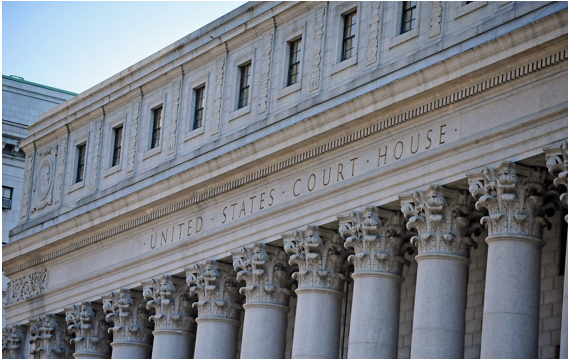Updated on March 24, 2022
On August 2, a U.S. court granted Italy’s motion to dismiss a lawsuit filed by New York’s Safani Gallery to recover a marble bust of Alexander the Great, which Safani purchased in 2017 from a London-based private collector.[1]
After Safani purchased the sculpture, the Italian government contacted the Manhattan District Attorney to inform the office that Italy considered the bust stolen. The Manhattan DA seized the bust in 2018, however, the New York County Supreme Court justice declined to rule on ownership of the sculpture, deferring to the federal court action that Safani filed in 2019.
Safani Gallery sued the Italian Republic in federal court to recover the sculpture. In last week’s decision, Judge Vernon Broderick agreed with Italy that the court did not have jurisdiction over the Republic under the Foreign Sovereign Immunities Act, the law that governs whether a foreign nation can be sued in U.S. courts. Under the FSIA, U.S. courts have jurisdiction over foreign sovereigns only if one of the law’s specific exceptions applies.
Here, Safani argued that three different exceptions allowed the gallery to sue Italy in the U.S.: the waiver exception, the expropriation exception, and the tortious activity exception.
- The Court disagreed, first finding that Italy had not explicitly waived immunity, nor had it implicitly waived immunity by contacting the Manhattan DA’s office or through any other actions.
- Regarding the expropriation exception, applicable to takings in violation of international law, the court found no evidence that Italy controlled the actions of the DA’s office in seizing the sculpture and that the alleged “taking” of the property did not violate international law.
- Lastly, Judge Broderick found that Safani did not meet the requirements of the “tortious activity” exception, which applies when a plaintiff seeks to recover for personal injury, death, or damage to or loss of property caused by the tortious act or omission of a foreign state. The Court concluded that the DA’s office was not acting as Italy’s agent in seizing the bust, and that in any event the tortious activity exception does not apply to DA’s actions because they were a “discretionary function” of the office.
Safani is an unusual case yielding a predictable decision on the immunity question. Unlike most FSIA cases, the plaintiff did not base its claim to jurisdiction on commercial activities in the United States. The bust’s ownership remains unresolved; the ruling dismissing Safani’s case was based only on Italy’s immunity and did not make any decisions regarding ownership. Although a claim against Italy predicated on the Manhattan District Attorney’s actions seems, on its face, to be a stretch. In the New York proceeding following the 2018 seizure, the state court ruled it was not best suited to determine the rightful ownership of the sculpture, apparently because the federal lawsuit had already been filed. Safani amended its complaint in response to the order dismissing the case, and Italy has not yet responded.
[1] Safani Gallery, Inc. v. The Italian Republic, 19-CV-10507 (VSB), Opinion and Order (Doc. 50, Aug. 2, 2021).
[2] https://news.artnet.com/art-world/safani-gallery-alexander-bust-1994886
Olga Symeonoglou is an Associate at Cultural Heritage Partners.
—————————
Thurgood Marshall U.S. Courthouse by warriorwoman531 is licensed under CC BY-ND 2.0.
